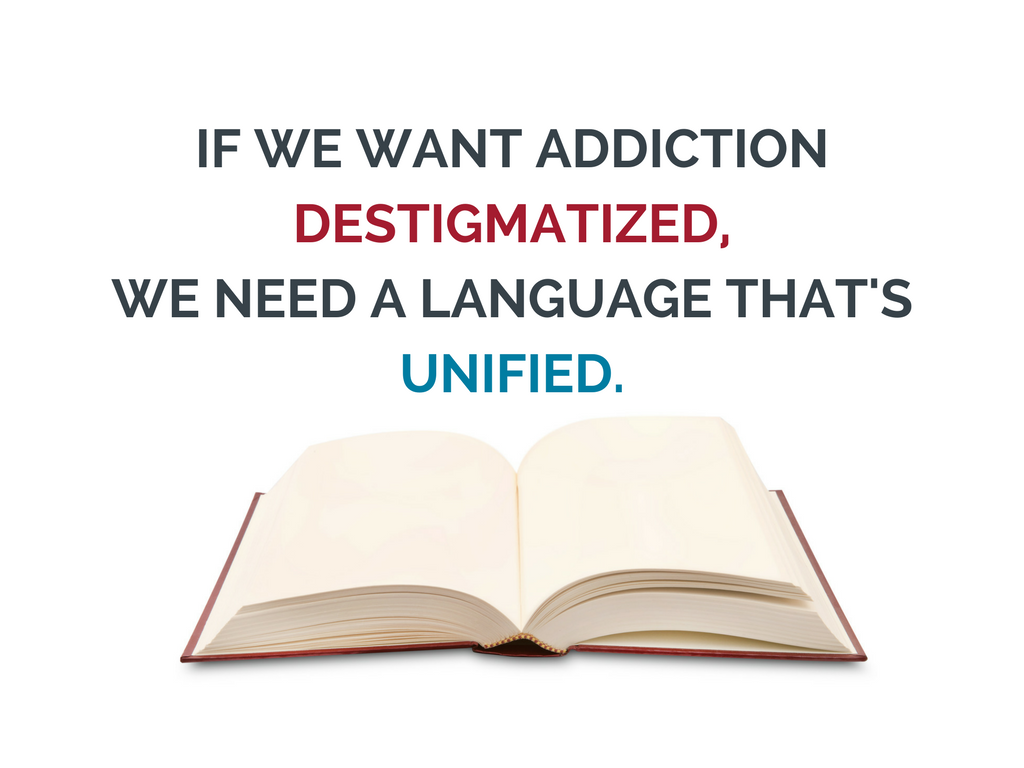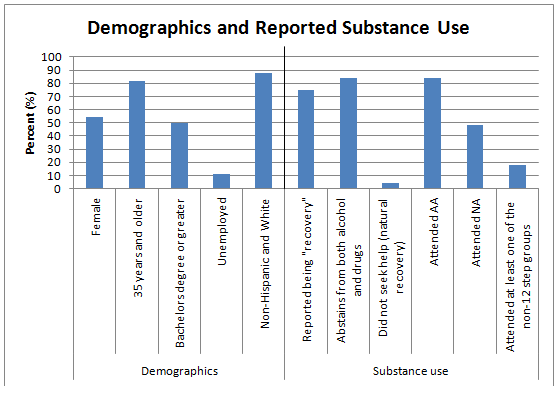Pinning Down a ‘Recovery Definition’
Historically, definitions of recovery from substance use disorder (SUD) have lacked specificity, therefore hindering measure development and research.
(See what the Recovery Research Institute is doing to address this by clicking here)

The concept of recovery is used by both the scientific community (including physicians, SUD researchers, and clinical treatment organizations) and people in recovery.
The scientific community uses the term to represent a medically directed course for clinical diagnosis, treatment, and rehabilitation, whereas, the recovery community describes a term, originally derived from Alcoholics Anonymous (AA) more as a way of living that involves abstinence from alcohol in a spiritual way outlined in the program’s 12 steps. The creation of the Affordable Care Act and accountable care organizations has meant a shift towards a continuing care model, where an individual receives treatment over a longer period of time.
Since recovery is a very individualized experience, key stakeholders are those experiencing it. In this light, Kaskutas and colleagues set out to develop a “user-defined” definition of recovery in order to further guide development of recovery support services.
The authors wanted to create a tool that could be used to help guide researchers in the selection of outcome domains when evaluating recovery-oriented systems of care, and to help reduce stigma by gaining a greater understanding of the positive experiences of recovery. The authors created and implemented a brief online survey (n=9,341). The main outcome of the study was a four factor structure containing 35 recovery elements. The authors used a multi-step, iterative process to distill items down to the 47 items that were included in the final survey.

|
Factor included in final model |
Elements included in factor |
|
Abstinence in recovery |
|
|
Essentials of recovery |
|
|
Enriched recovery |
|
|
Spirituality of recovery |
|
The authors compared individual factor scores based on:
(a) recovery duration (1 year or less; 2-5 years; more than 5 years)
(b) current substance use status (abstinent vs. moderate use)
(c) substance of choice (alcohol; drugs; none)
d) 12-step meeting exposure (0-90 meetings vs.>90 meetings)
(e) treated vs. untreated
(f) being in natural recovery (vs. not)
Kaskutas and colleagues found a four-factor structure for 35 elements that was found to be robust regardless of length in recovery, 12-step or treatment exposure, and current substance status.
Of note, overall 6 elements were endorsed by over 90% of respondents as definitely belonging in the recovery definition and those were:
1) being honest with myself
2) handling negative feelings without using drugs or alcohol
3) being able to enjoy life without drinking or using drugs like I used to
4) a process of growth and development
5) reacting to life’s ups and downs in a more balanced way than I used to
6) taking responsibility for the things I can change.
Finally, two elements “recovery is about giving back” and“recovery is about helping other people to not drink or use drugs like they used to” were also endorsed by more than 90% of the sample which suggests that helping behaviors are a part of the recovery context.
IN CONTEXT
This is the first extensive effort to explore the domains of recovery and to identify elements in those domains from the perspective of those in recovery.
It builds on prior definitions from the researchers and providers within the professional community (for example, definitions from the Betty Ford Institute; William White; and Kelly and Hoeppner.
- LIMITATIONS
-
Kaskutas and colleagues tried to evaluate the many constructs of recovery that a diverse group of individuals indicated are part of their personal definition of recovery, however, this study was exclusively performed online and racial minorities and individuals with lower education are underrepresented in this study. Even though the sample size is very large, it is not possible to know the full extent to which the findings may be representative of all individuals who consider themselves in recovery; however, this is a very positive first step.
A community-informed definition of recovery is vital and will help the field from both clinical and empirical perspectives by helping to give a more inclusive view of what recovery is.
CITATIONS
Kaskutas, L. A., Borkman, T. J., Laudet, A., Ritter, L. A., Witbrodt, J., Subbaraman, M. S., … & Bond, J. (2014). Elements that define recovery: the experiential perspective. Journal of studies on alcohol and drugs, 75(6), 999-1010.

